Gaza Rescuers Report Deadly Strikes Although Clashes Slow For Eid
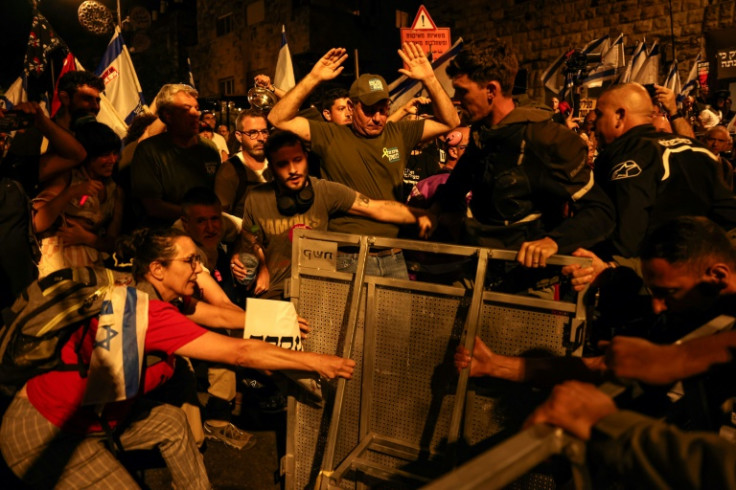
Israeli strikes on Tuesday killed at least 13 people in central Gaza, the civil defence agency in the Hamas-run territory said, although fighting has largely subsided as Muslims mark Eid al-Adha.
An Israeli announcement at the weekend of a daily "pause" of military activity to facilitate aid flows coincided with the Muslim holiday and has brought relative calm to parts of the besieged Gaza Strip after more than eight months of war.
In Jerusalem on Monday, thousands of Israelis protested against Prime Minister Benjamin Netanyahu's government over its failure to negotiate the release of scores of hostages still held in the Palestinian territory since Hamas's October 7 attack.
Demonstrators rallied outside the parliament and near Netanyahu's residence, demanding early elections and chanting "All of them! Now!" calling for the hostages release, as US, Qatari and Egyptian mediation efforts towards a truce deal have stalled for months.
"We need to shut down the country in order to make the government fall," said Yaacov Godo, whose son Tom was killed during the Hamas attack, at the start of what activists describe as a week of anti-government action across the country.
The war should have stopped "a long time ago", and the return of the captives would "end this story", Godo said.
Israeli media said another rally was planned in front of the parliament building late Tuesday.
In central Gaza, witnesses reported gunfire and artillery shelling near Nuseirat refugee camp, where the civil defence agency said at least 13 people died in two separate strikes on a family home and on a commercial building.
Witnesses and the Hamas government media office said there were some strikes and fighting elsewhere in northern and central Gaza.
An AFP correspondent reported Israeli strikes near Gaza City, though the violence appears to have decreased in intensity in recent days.
In Rafah, where the Israeli military has said it would pause fighting along a key route in the city's east, witnesses saw Israeli military vehicles and reported shelling in other areas.
The unprecedented October 7 attack by Palestinian militants on southern Israel that triggered the war resulted in the deaths of 1,194 people, mostly civilians, according to an AFP tally based on Israeli official figures.
The militants also seized 251 hostages. Of these, 116 remain in Gaza, although the army says 41 are dead.
Israel's retaliatory offensive aimed at eliminating Hamas has killed at least 37,347 people in Gaza, also mostly civilians, according to the territory's health ministry.
The United Nations says aid access to Gaza has been severely hindered by factors including insecurity, the closing of crossing points to the territory, and Israeli procedural delays.
The vital Rafah crossing with Egypt has been shut since Israeli forces seized its Palestinian side in early May.
"The idea behind the tactical pause in general is to allow for the UN to collect and distribute more aid," said Shimon Freedman, spokesman for COGAT, the Israeli defence ministry body overseeing Palestinian civilian affairs, at Kerem Shalom crossing near Rafah.
Displaced Palestinian Ali Hassan, sheltering in a tent in central Gaza's Deir al-Balah, told AFP that "Eid al-Adha this year is not like previous holidays."
"There is no meat or sacrificial animals, we don't even have clothes for the children," he said.
In a message for Eid al-Adha, US President Joe Biden has called for the implementation of a ceasefire plan he outlined last month, saying it was "the best way to end the violence".
An Israeli negotiator told AFP that tens of hostages "are alive with certainty", stressing that Israel could not commit to ending the war until all the captives were released.
The Israeli official, requesting anonymity to discuss the negotiations, said Israel had approved Biden's plan though Netanyahu has not endorsed in publicly.
Hamas has insisted on the complete withdrawal of Israeli forces and a permanent ceasefire. Netanyahu's far-right coalition partners strongly oppose a ceasefire.
Meanwhile, US envoy Amos Hochstein was in the region for talks with top Israeli and Lebanese official to press for de-escalation in border clashes involving Hamas ally Hezbollah.
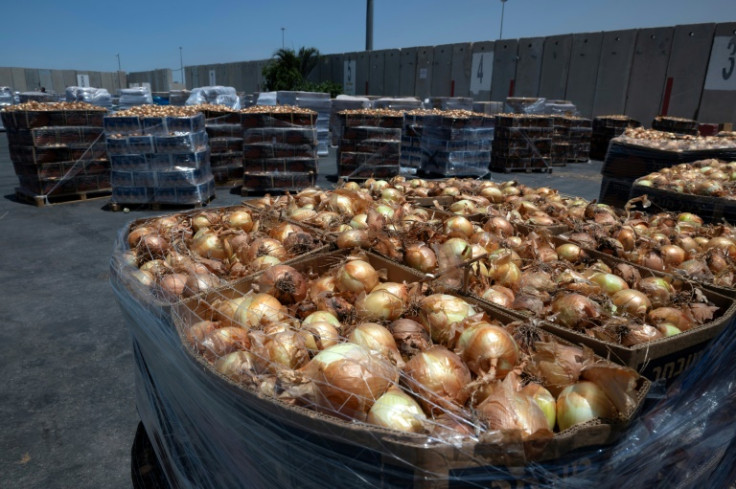
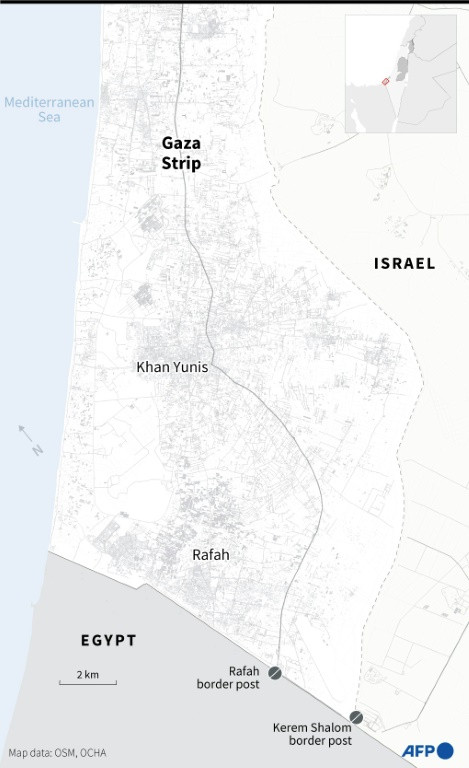
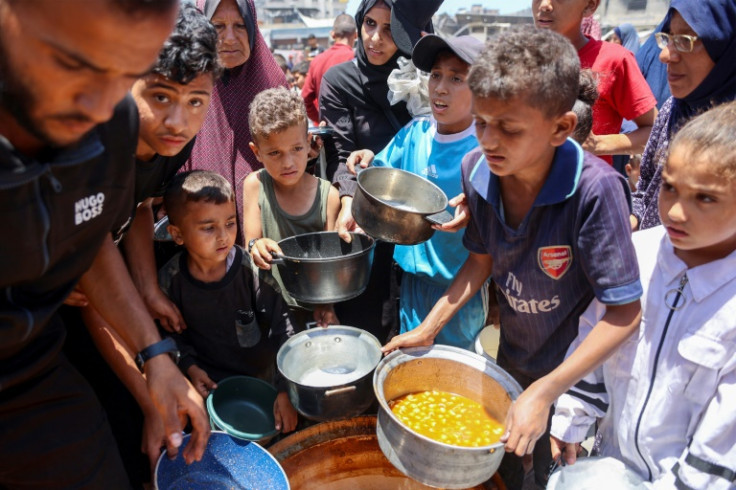
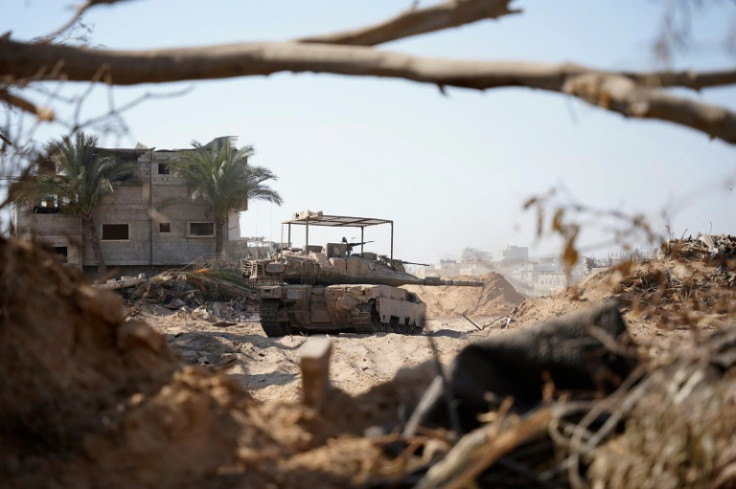
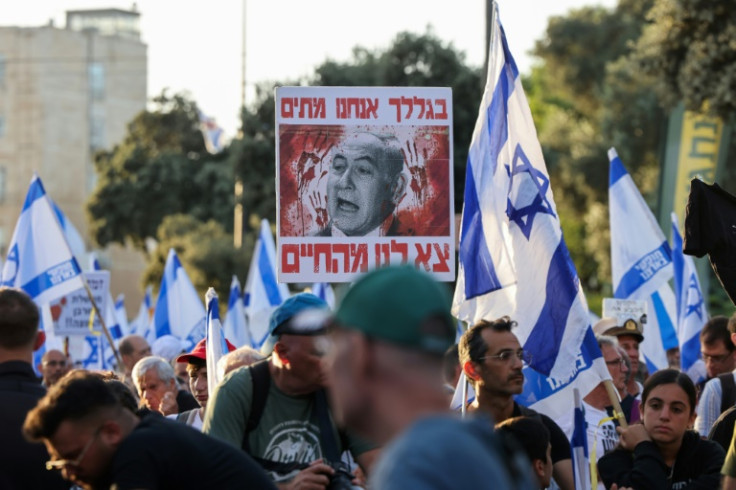
© Copyright AFP 2025. All rights reserved.





















